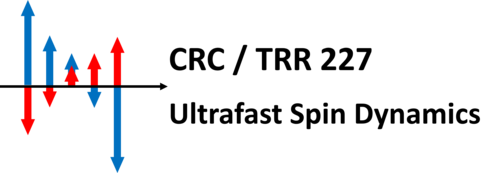ATM - Introduction to coupled dynamics of spins, phonons, and electrons by Danny Thonig (School of Science and Technology, Örebro University, Sweden)
The way in which atoms vibrate around their equilibrium positions as a function of temperature is of fundamental importance for a broad range of physical properties of solids, for example thermal expansion, specific heat, thermal conductivity, and superconductivity. In systems with magnetic order, there also exists collective motion of the magnetic moments, in addition to the above-mentioned lattice vibrations. Although worth being investigated individually, the atomic magnetic moments and the lattice degrees of freedom are always coupled via the electron subsystem. These couplings determine, for instance, how fast it is possible to change the magnetic state of a material, and how relaxation of the phonon and the electron subsystem proceeds after excitation with ultra-short laser pulses. Most of the different coupling mechanisms between the spin, lattice, and electronic degrees are still unexplored.
In this course, I will give an overview on couplings between spins, phonons, and electrons in both the adiabatic and the nonadiabatic limit. The lectures will cover a broad range of theoretical models and methods as well as some overview on experimental techniques. Theoretical concepts of the course can be directly applied during hands-on sessions.
Content
- Introduction
- Renormalisation of electron bands by phonons
- Multiferroics — an example for coupled degrees of freedom
- THz excitation of magnons by spin-lattice interaction
- Ultrafast demagnetisation
- Ultrafast experimental methods
- Pump-probe MOKE
- Electron diffraction
- Theory
- Brief summary of density functional theory, including Green functions and parametrised electronic structure models (tight-binding approach)
- Adiabatic approximations: spin and phonon properties from parametrised energy models
- Energy parametrisation
- Spin-spin exchange — RKKY, Heisenberg; relativistic effects (spin-orbit coupling): anisotropies, Dzyaloshinskii-Moriya interaction
- Lattice-lattice exchange — harmonic/anharmonic approximation
- Spin-dependent lattice exchange, lattice-dependent spin exchange
- How to determine energy parametrisations? — LKAG formula, Hellman-Feynman forces (reference for further reading to: exchange at finite spin and lattice temperature — force constants TDEP, SCAILD)
- Equations of motion — Landau-Lifshitz-Gilbert and Newton equation, (reference for further reading to effective models: three-temperature model etc.)
- Parametrisation of dissipation — Gilbert damping, lattice damping
- Observables — magnon-phonon spectra, angular momentum transfer, entropy specific heats, energy currents
- Energy parametrisation
- Adiabatic approximations continued: beyond parametrised models
- Hellman-Feynman forces
- Intrinsic magnetic fields from magnetic constraints
- Effective alloy models (coherent potential approximation, disordered local moment theory)
- Non-adiabatic approaches
- Time-dependent density functional theory
- Electron-occupation dynamics
- Spin-lattice-electron dynamics: examples
Hands-on sessions
During the hands-on sessions we will work with CaHmd, a computer program package for atomistic dynamics simulations of multiple degrees of freedom (e.g. electron, magnetisation, lattice vibrations) based on parametrised Hamiltonians. More details on the code, including an installation guide and different tutorials, are available here. A gitlab account is required, with the username sent to the organiser (danny.thonig@oru.se). If possible, please bring your own computer (Mac OS or Linux) to the course.
Main goals
- Provide participants with an overview on how spins, lattice, and electrons interact in materials (from a model perspective);
- Provide an outlook for open questions and possible extensions to the models;
- Provide hands-on experience with practical spin-lattice-electron simulations using the CAHMD simulation code.
Time & Location
Jul 11, 2022 - Jul 12, 2022
MLU Halle-Wittenberg - Institute of Physics
